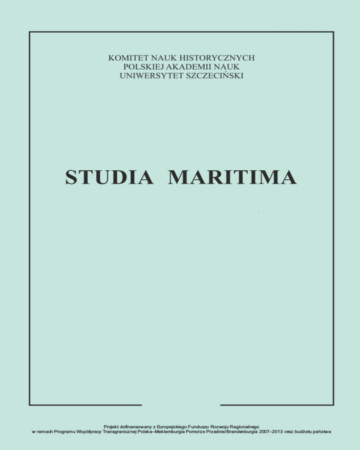






| Authors: |
Krzysztof
Komorowski
Wojskowa Akademia Techniczna |
| Keywords: | war military art geopolitical analysis philosophical reflection methodology of history system logic logic of defining international order peace fight conflict |
| Data publikacji całości: | 2016 |
| Page range: | 17 (5-21) |
| 1. | Bernhardi F., Vom heutigen Kriege, t. 1–2, Berlin 1912. |
| 2. | Borgosz J., Drogi i bezdroża filozofii pokoju, Warszawa 1989. |
| 3. | Braudel F., Morze Śródziemne i świat śródziemnomorski w epoce Filipa II, t. I, II, wstęp B. Geremek, W. Kula, Gdańsk 1976–1977. |
| 4. | Camon H., La genese du plan du guerre allemande 1914, „Revue Militaire Francaise” 1921, nr 5–6. |
| 5. | Clausewitz C. von, O wojnie, Warszawa 1959. |
| 6. | Fukuyama F., Koniec historii, Kraków 2009. |
| 7. | Gałganek A., Historia stosunków międzynarodowych, t. 1. Idee, t. 2. Rzeczy i praktyki, Warszawa 2013. |
| 8. | Gałganek A., Polemologia jako krytyka peace research, „Studia Nauk Politycznych” 1985, nr 3–4. |
| 9. | Gałganek A., Zmiana w globalnym systemie międzynarodowym: super cykle i wojna hegemoniczna, Poznań 1992. |
| 10. | Komorowski K., O przedmiocie historii wojskowości, w: Wojsko, wojskowość, miasta, red. K. Bobiatyński, P. Gawron, M. Nagielski, Zabrze 2009. |
| 11. | Komorowski K., Problemy bezpieczeństwa zewnętrznego Polski, w: Bezpieczeństwo Unii Europejskiej, Gdańsk 2011. |
| 12. | Kotarbiński T., Z zagadnień ogólnej teorii walki, Warszawa 1937, 1938. |
| 13. | Liddel Hart B., Strategia. Działania pośrednie, Warszawa 1959. |
| 14. | Richards C., A commentary on the „Perpetual Peace“ of Immanuel Kant, „Paideusis. Journal for Interdisciplinary and Cross Studies” 1999, nr 2. |
| 15. | Rosa R., Filozofia bezpieczeństwa, Warszawa 1995. |
| 16. | Schmitt C., Lewiatan w teorii państwa Tomasza Hobbesa, Warszawa 2008. |
| 17. | Strategia bezpieczeństwa narodowego Rzeczypospolitej Polskiej, Warszawa 2007. |
| 18. | Strategia obronności Rzeczypospolitej Polskiej, Warszawa 2009. |
| 19. | Wojna i pokój przedmiotem badań polemologiczno-irenologicznych, red. M. Huzarski, A. Czupryński, Warszawa 2012. |
| 20. | Wrihht Q., A Study of War, Chicago 1983. |
| 21. | Wrzosek W., Wojna w systemie społecznym F. Braudela, w: Przemoc. W poszukiwaniu interpretacji, red. W. Hanasz, G. Zalejko, Toruń 1991. |
| 22. | Zahn M., Kantowska teoria pokoju w świetle najnowszych dyskusji, w: Filozofia transcendentalna a dialektyka, red. M.J. Siemek, Warszawa 1994. |
| 23. | Znamierowski C., Prolegomena do nauki o państwie, Warszawa 1930. |